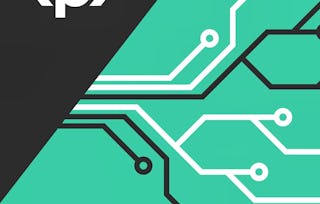Updated in May 2025.
This course now features Coursera Coach! A smarter way to learn with interactive, real-time conversations that help you test your knowledge, challenge assumptions, and deepen your understanding as you progress through the course. This course provides a comprehensive exploration of creational design patterns in modern C++. Starting with the fundamental S.O.L.I.D. principles, it prepares you with a strong foundation in design. You will then dive into patterns such as Singleton, where you'll learn about lazy instantiation, thread safety, and common issues, while the Factory Method and Abstract Factory patterns are broken down to highlight their power in managing object creation complexity. As you progress, the course presents more advanced topics like the Object Pool and Prototype patterns, helping you understand how to optimize memory usage and object duplication. Each pattern is paired with real-world examples and modern C++ techniques, ensuring you not only understand the theory but can also apply the patterns in practical scenarios. You'll also explore alternative design solutions like the Monostate pattern and strategies for improving flexibility in software architecture. By the end of the course, you will have an in-depth understanding of how to use creational patterns to solve complex design problems in a systematic and efficient way. This course equips you with the tools and knowledge to write better code by leveraging the power of creational design patterns in modern C++. This course is designed for intermediate to advanced C++ developers who have a working knowledge of object-oriented programming and want to enhance their understanding of design patterns. Familiarity with C++ and later versions is required.















